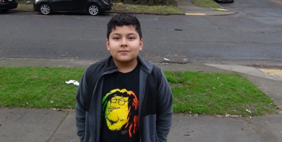Related Articles
Relevant Topics
-
Africa
-
Amazon
-
Antioch University
-
Aviation High School
-
Brian Baird
-
Brooke Valentine
-
child
-
Coral Academy of Science Charter School
-
Eric Pettigrew
-
King County
-
member of congress
-
Microsoft
-
Nevada
-
Renton
-
science, technology, engineering, and mathematics
-
Seattle
-
Seattle Public Schools
-
Seattle University
-
Somalia
-
South Seattle Community College
-
Tibet
-
United States of America
-
University of Washington

Introduction
In January the Washington State Charter School Commission convened forums around the state to hear from the public about proposals to open the state’s first charter schools. Voters approved a charter school law in November 2012, making Washington the 42nd state to authorize the popular independent public schools. The Commission heard proposals from 19 community-based groups seeking to open charter schools. The law allows just eight such schools to open the first year.
Families attend Seattle public meeting
The Charter School Commission held an evening public meeting on January 17th at Seattle’s Aviation High School to consider proposals to open the city’s first charter school.
The commissioners convened the meeting in a crowded auditorium and heard from Channie Butler, representing a group seeking to open a school for children living in south Seattle, including the children of immigrant families from Somalia and other East African countries. She reported many families found traditional public schools fail to meet the needs of immigrant and at-risk children. The proposed charter school would include a rigorous core curriculum and stem-based math and science courses.
Over 200 parents and community members attended. Many parents spoke movingly about what opening the proposed King County Academy would mean for their children.

One speaker, Hassad Hassan, introduced himself as part of the Somali community and expressed the frustration many families feel about Seattle Public Schools:
"I am a father and I am not happy with the academics my children are receiving from the public school district. A charter school will have long hours and early intervention in read, math and technology. If King County Academy opens their doors tomorrow, I will not hesitate to enroll my children and recommend the same to all the members of my community.” (at 31:17)
Another speaker described the hope families feel at the chance to send their children to a good school after fleeing war-torn areas of Africa:
“I am overwhelmed by the support of the community and by the opportunity the commission and the voters of this state have given to support charter schools. My [Somali] community came from a background of a civil war, from a country that used to be one of the best in education in Africa. They have difficulty. America has supported these people to come over here, to have a second chance of life. I would also like to commend that America has given our community the opportunity to get a good education.” (at 34:39)
One mother expressed the excitement many parents feel about the prospect of a charter school opening in their area:

“A charter school would bridge the gap we have in our community.... Our children are being held back in public schools that are not equipped to fill our need.... King County Charter school is going to be awesome. The parents are ready. Everyone is ready.” (at 37:24)
An earlier public meeting held on January 13th at South Seattle Community College was packed by union opponents who aggressively dominated the agenda. The January 17th meeting was attended mostly by parents and community representatives. In the audience, union executive Jonathan Knapp, president of the Seattle Education Association (SEA) listened but chose not to address the meeting. His union strongly opposes allowing parents to send their children to a charter school.
The meeting revealed some of the enthusiasm a new charter school is generating among parents who are underserved by traditional schools and who want to give their children a better life through education.
Charter school proposals draw parents to Renton public meeting
The Commission held a public meeting on January 15th in Renton to hear the proposals of three charter school applicants. More than 350 people showed up during the course of the evening, with standing-room-only the first hour. Immigrant, low-income, middle-income and upper-income parents testified they hoped their children could attend one of the three proposed charter schools.
The first presentation came from computer scientists employed at Microsoft and Amazon. They hope to open Coral Academy of Science Charter School, an established, successful charter school program seeking to provide a rigorous, integrated Science Technology Engineering and Math education to at-risk students in Kent. The school’s reputation for excellence elicited these public comments:
A truck driver said he wanted his children to attend Coral Academy of Science charter school, so they can get an education and have a better life.
Nazan Kurt, a computer scientist, said she would like her children to attend Coral Academy of Science.
A college student, the son of immigrants, said the Coral Academy of Science charter school in Nevada prepared him for majoring in computer science at the University of Washington.
The second school was presented by Adel Sefrioui and Brooke Valentine, education leaders from Kent. They hope to open Excel Public Charter School, a 6th through 12th grade school for disadvantaged students. Excel Public Charter School would offer the equivalent of 80 additional days of learning through longer and more school days, double the time spent on reading and math, a mix of instructional methods to suit the children, and a culture of high expectations.
Many people from Kent spoke in enthusiastic support of Excel Public Charter School. Mychal Boiser, Executive Director of Kona Kai Coffee, who employs and trains high-school drop-outs, eloquently described the need of parents in Kent to have the choice of sending their children to Excel Public Charter School.
The third proposal came from Cedar River Academy, a private school that wishes to become a charter school so more children can have access to its highly individualized successful program. Two mothers testified in tears that Cedar River Academy’s alternative program has offered their daughters a real chance at success in school.
Educators seek to open charter school for homeless children
Educators at First Place School applied to open a public charter school in Seattle under Washington’s voter-approved charter school law.
For 25 years First Place educators have worked with the Seattle School District to educate children who have suffered from poverty, trauma and homelessness. First Place teachers are skilled at reaching out to these deeply hurt, very poor children; children who have difficulty fitting into traditional public school programs. The school plans to offer classes from kindergarten through fifth grade to 154 needy children.
Board Vice President Daniel Seydel presented First Place’s proposal to the Charter School Commission at a public forum in West Seattle. First Place teacher Uti Cleveland then described the school’s team of case workers, mental health counselors and support staff who help her interact with and educate traumatized children.
Many people from the Seattle community came to testify in support of First Place School. One boy, Tibet, was asked why he liked First Place School. He quietly and deliberately said, “I like my teacher, Ms. Reed. She knows a lot.”

Possible charter school student: “I like my teacher.”
Tibet’s confidence shows the difference a good teacher and a good school can make in the life of a child. Ms. Reed teaches 4th, 5th and 6th grade students at First Place. She and the academic team that supports her know how to reach vulnerable kids, to bring their learning to grade level and beyond, so these children can be prepared to succeed in school and in life.
First Place Schools charter school application garnered broad local support, including endorsements from State Representative Eric Pettigrew (D-Seattle), former State Representative Dawn Mason (D-Seattle), former Congressman and current president of Antioch University Brian Baird, Boys and Girls Club of King County Rotary Branch, Catholic Housing Services of Western Washington, NU Black Arts West Theatre, and Seattle University’s Social Work Program.
Conclusion
Charter schools are popular with parents. The policy goal of charter schools is to make sure children benefit from the kindness, safety and learning Ms. Reed, Ms. Cleveland and other caring teachers provide at schools like First Place. They provide a secure environment to homeless kids for whom the world can be a very scary and dangerous place. The series of public meetings indicated that all 19 charter school applications presented to the Commission represent the hopes and dreams of parents seeking a better future for their children.
Download a PDF of this Policy Note here.





